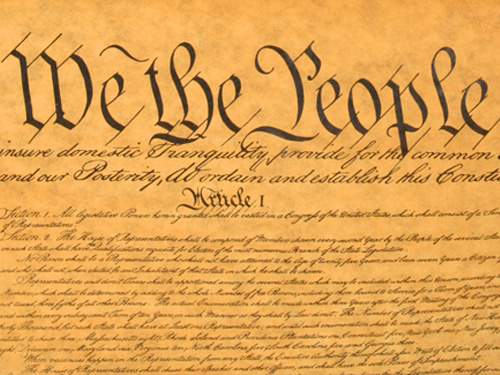By Dr Lloyd Harsch
Baptists have championed religious liberty ever since Thomas Helwys pennedThe Mystery of Iniquity in 1612, the first plea for religious liberty in the English language. We have also paid a steep price for doing so. Just two weeks after sending a copy of his book to King James (the same king who authorized a Bible translation that bears his name), he was arrested and died in prison. The same fate befell Helwys’s successor when he authored a similar plea eight years later.
In colonial America, Baptists faced fines, imprisonment, and whippings for conducting worship services outside of the official State Church. By the early 1800s, they were legally tolerated as second class citizens. It was out of this experience that our predecessors fought for the religious liberty all Americans now enjoy. Pastors collected and published stories of persecution . Baptist Associations formed committees to lobby State governments on behalf of religious liberty. The majority of their work centered on educating the public and legislators on the cost and inequity of repressing all religious expression, not just that of Baptists. When laws were presented that offered anything less than liberty, they brought what political influence they could muster in opposition. As a result, working with political allies of varying stripes, the First Amendment came into being, stating that “Congress shall make no law respecting an establishment of religion, or prohibiting the free exercise thereof.”
This right has two components: the Establishment Clause and the Free Exercise Clause. The Supreme Court of the United States has zealously protected the rights of individuals from government infringement regarding acts of conscience (Free Exercise). The Court has also been wary of anything that appeared to promote one religion at the expense of others (Establishment). Chief Justice Warren Burger in Walz v. Tax Commission of the City of New York 397 U.S. 664 (1970) summed it up well:
The general principle deducible from the First Amendment and all that has been said by the Court is this: that we will not tolerate either governmentally established religion or governmental interference with religion. Short of those expressly proscribed governmental acts there is room for play in the jointsproductive of a benevolent neutrality which will permit religious exercise to exist without sponsorship and without interference (emphasis added).
Defining the boundaries represented by these two clauses has been challenging. The testing and defining of those boundaries has often been initiated by fringe religious sects such as the Jehovah’s Witnesses. It is not the commonly accepted practice that receives scrutiny, but that of an outsider group. Evangelical Christianity is now finding itself on the outskirts of society’s norms and at the center of litigation.
This is the result of a significant shift in society’s understanding of religious liberty from that of past generations. American society is rapidly redefining religious liberty in terms that used to be used for toleration. Individuals are free to believe anything they wish behind the closed doors of their homes or places of worship, but religious liberty must be left at the door when one enters the business world or the public square.
Four centuries have not diminished the relevance of Helwys’s comments: “Let them be heretics, Turks [Muslims], Jews or whatsoever, it appertains not to the earthly power to punish them in the least measure.” When the religious liberty of one group is suppressed, all liberty is at risk.
Four centuries have not diminished the relevance of Helwys’s comments: “Let them be heretics, Turks [Muslims], Jews or whatsoever, it appertains not to the earthly power to punish them in the least measure.” When the religious liberty of one group is suppressed, all liberty is at risk.
The Institute for Faith and the Public Square, in conjunction with the Baptist Center for Theology and Ministry and the Baptist History and Heritage Society, is hosting “Baptist Voices on Religious Liberty .” This conference will feature Baptists representing different ethnic, regional, and theological backgrounds. The representatives of both Baptist groups lobbying in Washington regarding religious liberty will speak. Voices from Canada, Ukraine, and the Middle East will join those from America. Each speaker will address religious liberty’s importance and evaluate its status regionally and globally.
Due to the generous support of a local congregation, this conference is being offered free of charge and is open to the public. All that is asked is that attendees register so that sufficient space can be reserved. Sessions will be recorded and available online. For more information and to register, please visit www.faith-publicsquare.org.
Dr. Lloyd Harsch is Professor of Church History and Baptist Studies, Occupying the Cooperative Program Chair of SBC Studies; and Director of the Institute for Faith and the Public Square.

